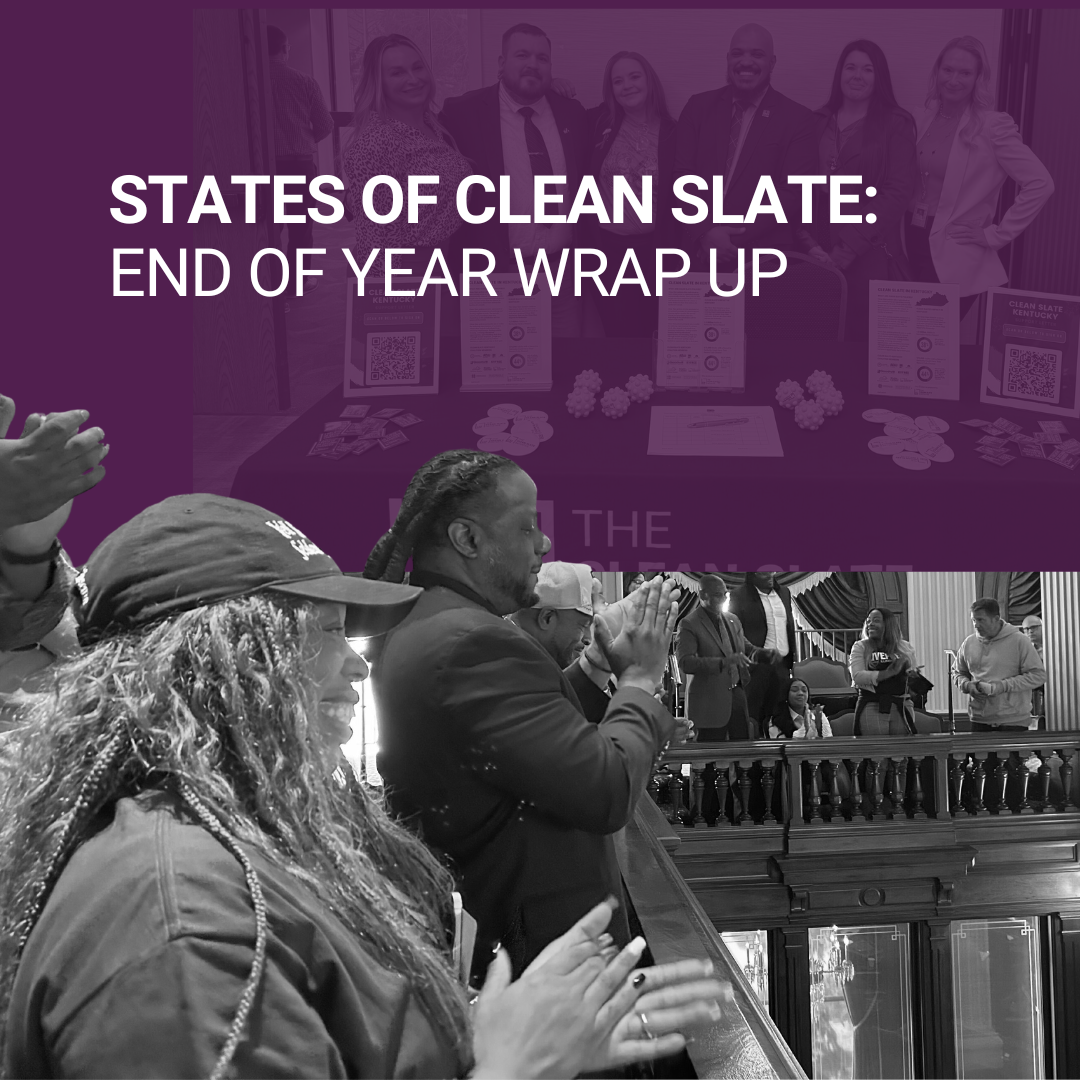New Research: How Clean Slate Won in Pennsylvania and Utah — and What Other States Can Learn

A new study funded by The Clean Slate Initiative, “‘This is Everyone’s Issue’: Policy Entrepreneurs, Issue Framing, and Coalition Building in the Passage of Automatic Criminal Record Expungement,” was recently published in Criminology and Public Policy. This study examines how Pennsylvania and Utah became the first states to pass Clean Slate laws. Drawing on qualitative interviews with 69 government and community stakeholders across seven states, the authors identify the core strategies that enabled successful passage in politically conservative and polarized environments.
Three Key Strategies were at the Heart of the Successful Clean Slate Campaigns
The study identifies three interlocking strategies that were essential to policy passage and have influenced the replication of Clean Slate campaigns across the country:
- Policy Entrepreneurs Who Knew How to Move the System: Key individuals in both states acted as policy entrepreneurs - people who don’t just support an idea but actively shape, promote, and push it through the political system by leveraging deep subject-matter knowledge, strong political networks, and strategic persistence. Their leadership was critical not only to passage but also to implementation, expansion, and policy diffusion.
- Framing the Issue Around Jobs, Public Safety, and Opportunity: Advocates deliberately framed Clean Slate primarily as a workforce development and economic growth issue, rather than emphasizing racial or criminal justice. This approach appealed to bipartisan values, especially in conservative states, by emphasizing job creation, public safety, and redemption/second chances. Personal testimonies and polling data were used to humanize the issue and demonstrate widespread public support.
- Building Broad and Sustainable Coalitions: Diverse coalitions were built across ideological lines, bringing together progressive and conservative legislators, law enforcement, the business community, and advocacy organizations. These alliances helped defuse political opposition, secured endorsements from influential groups, and enabled bipartisan passage. In some cases, this meant accepting compromises (e.g., exclusions for certain offenses) in order to achieve broader support. Strong and enduring coalitions facilitated subsequent expansion of Clean Slate in Pennsylvania, as well as other collaborative reform efforts.
The Importance of Bipartisanship
The study also highlights the contrast with more progressive states, where advocates relied heavily on party-line support and often made less effort to build bipartisan coalitions. As a result, Clean Slate efforts stalled or moved more slowly in those states. The findings suggest that even in states where Democrats hold legislative majorities, a broader bipartisan approach can increase the chances of durable policy adoption and successful implementation.
What Pennsylvania and Utah Can Teach Clean Slate Campaigns Nationwide
- Strategic framing matters. Positioning Clean Slate as a workforce and economic opportunity initiative helped build bipartisan consensus and disarm opposition.
- Durable, broad coalitions are key. Progress is more likely and sustainable when diverse voices, including business, law enforcement, and representatives from directly impacted communities, are part of the conversation. Shared credit and accountability across political lines can also ensure that policy change endures into the future and maintains potential for expansion.
- Avoiding racial justice framing can be politically expedient, but it raises equity concerns. While advocates in this study at times strategically avoided race-based framing to advance legislation, the authors note that this limits the ability to directly and fully address the racial harms of the criminal legal system.
- Passing Clean Slate is only the beginning. The study underscores the need for ongoing research into Clean Slate implementation and outcomes, particularly around equity, eligibility, and ensuring that record sealing is effective.
By unpacking the strategies that enabled breakthrough bipartisan Clean Slate policy wins in Pennsylvania and Utah, this study offers a roadmap for advancing Clean Slate reforms in states with conservative, divided, and polarized political conditions.
.avif)
.avif)







.png)